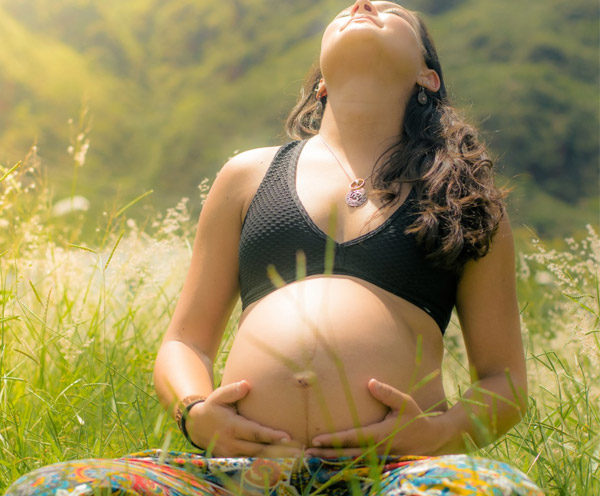How Pregnancy Pilates Can Help You
Pilates is a low impact activity, particularly suitable for pregnant women as it puts minimal strain on the joints as well as providing an effective way of maintaining physical health and preparing the body for the birth. It is also a fantastic way of releasing tension whilst delivering a safe, muscle building, mind/body strengthening exercise system for pregnant women.
Most of us are aware that women benefit from some form of exercise during pregnancy in order to help keep in shape and prepare the body for the demands of physical labour. However, a vast number of pregnant women are unaware of the multiple benefits, both physical and mental, offered by pregnancy Pilates.

Is Pilates Safe During Pregnancy?
It is important to check with your midwife before starting any new exercise program during pregnancy. Always ensure that the Pilates instructor is antenatal trained and aware of the stage of your pregnancy, as there are certain exercises which shouldn’t be practised at certain stages of pregnancy, or indeed practised at all.
Physical Benefits
Strengthening
As the baby grows in the uterus, the abdomen must stretch and loosen in order to accommodate the baby. This results in a weakening of the entire abdominal region, including the deep abdominal muscles, and the pelvic floor muscles.
The pelvic floor muscles are responsible for providing support to internal organs such as the bladder and the bowels; they can also have an impact on sexual function. Weak pelvic floor muscles can cause some women to experience urinary incontinence during pregnancy and after delivery. It is also common for the abdominal muscles to separate during pregnancy (diastasis recti), maintaining strength in the abdomen throughout pregnancy can minimise the effects and assist in recovery.
Through a series of adapted movements and posture, pregnancy Pilates focuses on strengthening the abdominal and pelvic floor muscles to develop a stable core, and this helps to support the back and the weight of the baby, as well as reducing stress incontinence.
Mobility
Pregnancy Pilates focuses not on flexibility but rather on mobility. During pregnancy the body releases relaxin, a hormone responsible for relaxing the ligaments in the pelvis, allowing the hips to expand, as well as widening the cervix in preparation for birth. The effects of relaxin however, are not limited to one area of the body, and result in the relaxation and loosening of all the ligaments in the body – this can lead to instability and an increase in flexibility, causing in some cases, for the ligaments to overstretch, subsequently increasing the risk of injury. The controlled movements which work to strengthen the deep stabilising muscles and glutes, can help to counterbalance this increased laxity.
Balance
It is not uncommon for pregnant women to experience issues with balance – this is often due to the adaptation of the weight and load changes to the body as well as the softened ligaments. Pilates can help with balance by maintaining a strong core and improving the body’s ability to cope with the weight of the baby.
Improved Posture
Posture is key to Pilates, as all exercises focus on posture, strength and coordination. Helping to strengthen the core muscles also improves overall stability.
Pain Relief
Many women experience pregnancy related aches and pains – these are often felt in the lower back. Pilates aims to prevent and ease back pain and Pelvic Girdle Pain (PGP), a painful condition sometimes experienced during pregnancy. When done properly, pregnancy Pilates can help support and alleviate some of the symptoms of PGP and help take the strain off the back and pelvis.
Birth Preparation
An integral element of Pilates is breathing. Learning breathing techniques properly and keeping a rhythm during movement can be extremely helpful during labour, helping the mother to remain calm and reducing painful symptoms.
Improved Postnatal Recovery
Keeping muscles strengthened and in shape during pregnancy can help the body recover quicker following birth. The abdominal muscles are stretched to their maximum capacity during pregnancy and labour, and then are left soft and lax. Participating in antenatal Pilates can target these muscles, keeping them strong and toned throughout the pregnancy, making it easier to get back into shape after birth.
Psychological Benefits
Antenatal classes offer the chance to relax and to meet and form friendships with other women in a similar situation. Participating in Pilates and other types of exercise during pregnancy offers a wide range of possible psychological benefits such as increased self-esteem, a reduction in depression, a less stressful childbirth and improved general mood.
How We Can Help
ProPhysiotherapy offer a small and intimate antenatal Pilates class with a highly qualified instructor. Classes are tailored to suit individual stages of pregnancy and focused on helping the mother to be strong, healthy and prepared for the birth. Get in touch today for more details.
